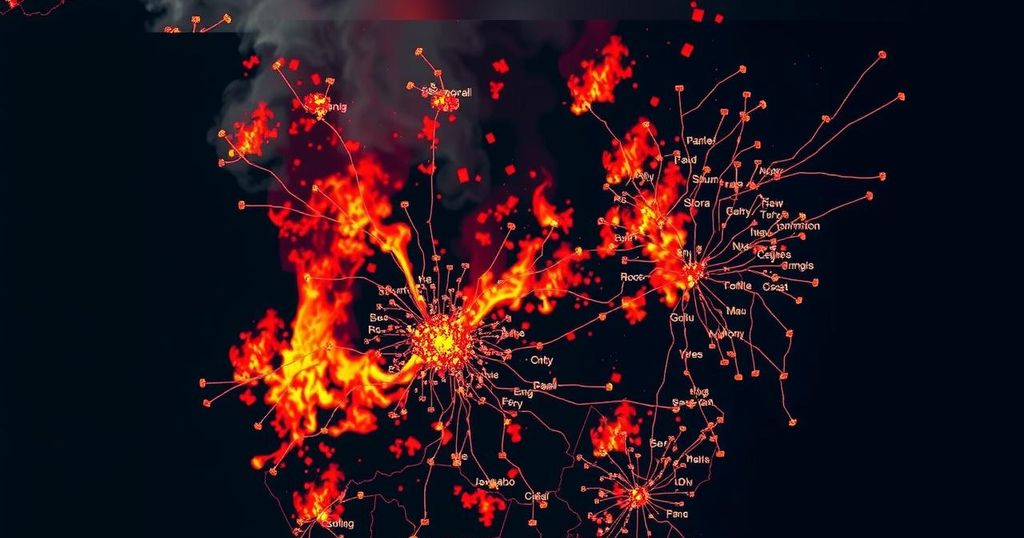Zambia and Zimbabwe Experience Nationwide Blackouts Amid Power Crisis
On Sunday, Zambia and Zimbabwe experienced nationwide blackouts caused by disturbances in their power grids. Both countries have been facing significant electricity shortages due to reduced water levels at the Kariba Dam, which has led to only about seven hours of power supply daily. Though immediate issues were managed at hospitals in Zambia, authorities are investigating the outages to prevent future occurrences.
Zambia and Zimbabwe experienced a nationwide blackout on Sunday evening, with power being disrupted simultaneously in both countries. Authorities from Zambia reported that the outage occurred at 20:15 hours, while the Zimbabwe Power Company noted that their national grid faced a disturbance at approximately 8:25 pm. Over the past several months, both nations have endured significant power limitations, receiving around seven hours of electricity daily due to a severe drought impacting the water levels at the Kariba Dam, a critical source of hydropower for the region.
Despite the nationwide blackout, Zambia’s University Teaching Hospital reported no fatalities or significant incidents, thanks to the performance of backup systems. Power was restored to the hospital within thirty minutes; however, the timeline for the complete restoration of electricity across the country remains unclear. Zambian officials stated that technical teams are investigating the causes of the outage and are focused on implementing measures to avert similar occurrences in the future.
The prolonged electricity shortages in both Zambia and Zimbabwe, which have seen water levels at the Kariba Dam plummet to 2.40 percent as of November 18, have prompted many residents and businesses to seek alternative energy solutions, such as solar power. As authorities scramble to resolve the recurrent power supply issues, public reliance on external energy sources continues to rise, further underscoring the urgency of addressing the ongoing energy crisis in the region.
Zambia and Zimbabwe rely heavily on the Kariba Dam for their hydroelectric power needs. As one of the largest sources of hydropower in southern Africa, the dam’s dwindling water levels have been a significant concern, particularly in light of ongoing dry conditions exacerbated by climate change. The potential mismanagement or failure to adapt to these environmental challenges has led to frequent power shortages, creating a critical situation for the economies and living conditions in both countries. Residents have been left to cope with shortages, turning increasingly towards solar power as a sustainable alternative.
The simultaneous blackout in Zambia and Zimbabwe highlights the critical vulnerabilities in their energy supply systems, particularly as shortages have persisted due to drought conditions impacting the Kariba Dam. As both nations confront these challenges, there is a pressing need for comprehensive investigations and the implementation of robust solutions to prevent future disruptions. Furthermore, the growing shift towards renewable energy sources among the public reflects an evolving response to these ongoing issues.
Original Source: www.barrons.com




Post Comment